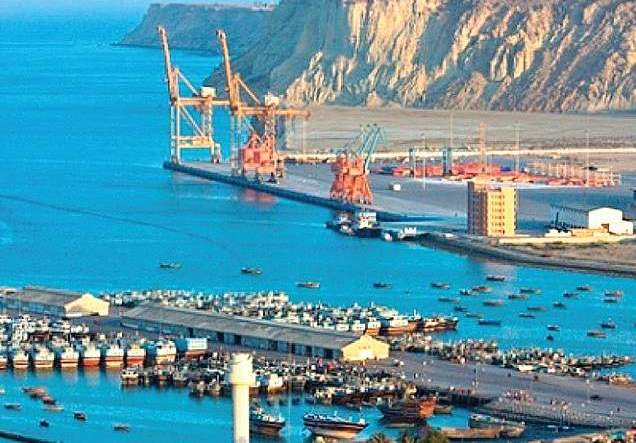ISLAMABAD: Federal Minister for Commerce, Jam Kamal Khan, on Tuesday chaired a cabinet committee meeting aimed at exploring the feasibility and strategies for routing 60% of public sector imports, including wheat, fertilizer, and sugar, through Gwadar Port.
The meeting brought together key stakeholders, including the Federal Minister for Maritime Affairs, Qaiser Ahmed Sheikh, and senior officials from the ministries of commerce, maritime affairs, interior, and planning, to deliberate on this strategic initiative, said a press release issued here.
The committee, established to propose actionable recommendations to the prime minister, reviewed progress on existing plans and discussed the roadmap to enhance the utilization of Gwadar Port. The committee agreed to convene monthly and report quarterly to the cabinet, ensuring periodic review of progress in realizing Gwadar’s potential as a key trade hub.
The committee emphasized utilizing Gwadar Port for bulk imports such as wheat, sugar, and urea.
The minister proposed a two-part approach: first, presenting a comprehensive strategy to integrate Gwadar into the national trade framework by fostering a supportive business environment, and second, leveraging immediate opportunities such as public sector imports via the Trading Corporation of Pakistan (TCP).
The potential for containerized imports and exports through Gwadar was also reviewed. Members emphasized the importance of identifying private sector commodities and offering incentives to promote trade through the port.
Discussions included the formation of a dedicated working group to facilitate private sector engagement and the exploration of Gwadar’s viability for transshipment and transit trade with Afghanistan and Central Asian Republics (CARs).
The committee acknowledged the progress made in transshipment initiatives and noted China’s interest in leveraging Gwadar under the One Belt, One Road (OBOR) framework.
It was noted that addressing the cost differential between Gwadar and Karachi would be essential to ensuring competitiveness, particularly in government-to-government (G2G) deals with countries like Bangladesh.
Financial support mechanisms for this adjustment were discussed.
The committee sought feedback on pending responses from Ministries and departments for improving business-enabling environment for Gwadar port and encouraged further collaboration with logistics experts from the sectoral councils.
The committee discussed measures to encourage bulk cargoes through Gwadar to enhance port utilization significantly.
A working paper highlighting enabling factors, such as road and rail linkages, insurance facilitation, and security arrangements, will be presented to the prime minister in the next meeting.
The cabinet committee reaffirmed its commitment to transforming Gwadar Port into a cornerstone of Pakistan’s trade and logistics ecosystem.
With targeted policy interventions and coordinated efforts, Gwadar’s role in public sector imports and regional connectivity is set to expand significantly in the coming years.




